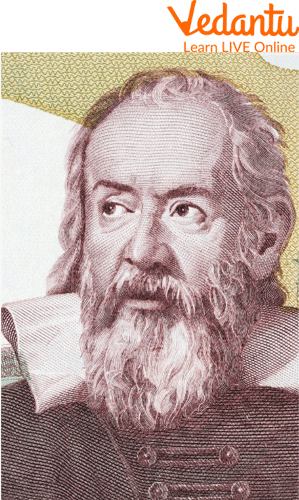




Galileo Information
You've probably used a telescope. Are you familiar with all of Jupiter's moons? You might already be aware that the Earth rotates around the sun. If yes, then the subject of today's Wonder of the Day has had an impact on you. Who are we referring to? Galileo, undoubtedly! Galileo invented telescope. His penchant(tendency to do something) for self-promotion made him enemies of the authorities of the Catholic Church and powerful friends within Italy's ruling elite. He is frequently cited as the "founder of modern physics" and "father of modern astronomy." Galileo was referred to as the "father of modern science" by Albert Einstein. Let’s now see in detail who was Galileo Galilei.
About Galileo
In 1564, alileo Galilei was born in Pisa, Italy. Galileo received his education in a local monastery after his family relocated to Florence. Later, he came back to Pisa to enrol in the university there. Galileo studied those subjects at school which he intended to study medicine. However, he soon developed a greater interest in physics and mathematics. He also took philosophy classes. Galileo, however, never finished his education. He graduated from college in 1585.
Galileo, however, never stopped learning throughout the rest of his life. He observed his surroundings. For the sake of expressing his curiosity, he also conducted numerous experiments. This pursuit of knowledge will cause Galileo a lot of difficulties later in his life. Galileo was respected by many individuals. He was regarded as a superb educator and scientist. Others yet believed Galileo's theories to be harmful. Catholic Church authorities were among his harshest critics.
Galileo was a natural philosopher, astronomer, and mathematician who made major contributions to the creation of the scientific method and the disciplines of motion, astronomy, and strength of materials. He also made ground-breaking telescopic discoveries, such as the discovery of Jupiter's four biggest moons.

Galileo Galilei
Galileo Galilei Inventions
Studies in Motion
One of Galileo's most important contributions to physics is the law of falling bodies. It asserts that objects fall at the same speed regardless of their weight or shape. Galileo disproved the general Aristotelian theory that heavier objects fall more quickly than lighter ones through his tests.
Military and Geometric Compass
Galileo started selling military and geometric compasses of his design in 1598, although the sales were not particularly successful.
A Stronger Telescope
Although he did not design the telescope, Galileo was able to make fresh empirical discoveries because of improvements he made to the telescope's original Dutch models.

Telescope by Galileo
Facts About Galileo
He's the most famous astronomer in history and he had a pretty big impact on how we understand the universe. It was Galileo's observations that led him to believe that Earth is not at the centre of or even flat on its axis. Rather, Galileo believed that it goes around in a vacuum-like space with satellites like our moon orbiting around us.
Some interesting facts about Galileo are as follows:
The names of Galileo Galilei are similar on purpose. He was born in Tuscany, Italy, in 1564, a time when parents regularly gave their boys names that were derived from the names of their extended families.
The scientist left school after one semester. Galileo was sent to study at the University of Pisa at age 16 due to his outstanding brilliance.
He created a lot of inventions. Galileo is credited with several significant discoveries, including the thermoscope.
Galileo pointed the telescope upward. Galileo discovered a Dutch innovation in 1609 that made distant objects appear considerably closer.
He went blind (but not by the Sun). While incarcerated for being a heretic in his home in Florence, Galileo continued to work and write, and during this period, his vision started to get hazy.
Summary
From Galileo information, we have learnt a lot about him. He studied medicine before focusing on mathematics, the son of a musician. He became well-known because he created the hydraulic cylinder in 1586. His work on the centre of gravity in solids, published in 1589, earned him a position as a mathematics instructor at the University of Pisa. There, he challenged the Aristotelian claim that objects of different weights fall at varying rates. He also put out the law of uniform speed for falling objects and demonstrated that a parabola represents the trajectory of a thrown object. We hope you enjoyed reading this article, in case of any other doubts, feel free to ask in the comments.
FAQs on Facts About Galileo
1. What did Galileo do that was new?
In the study of motion, Galileo was the first scientist to clearly define force (as opposed to mere weight) and to separate it from mass.
2. Was Galileo's work on astronomy confined to the telescope?
It wasn't confined to the telescope, but it was his improvements on that tool that made him famous.
3. What was Galileo's most notable accomplishment?
Using a telescope to study the sky was Galileo Galilei's greatest accomplishment. Galileo created his telescope from models he studied, enabling him to boost the magnification to around 30x.









